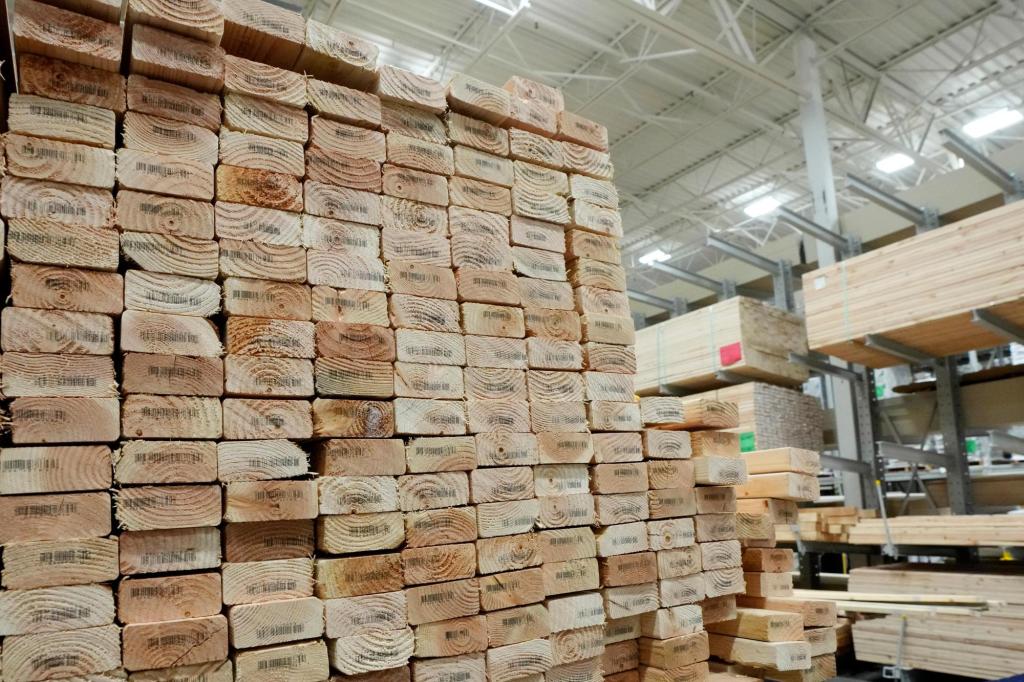
After weeks of White House hype and public anxiety, President Donald Trump is set to announce a barrage of self-described “reciprocal” tariffs on friend and foe alike.
The new tariffs — coming on what Trump has called “Liberation Day” — is a bid to boost U.S. manufacturing and punish other countries for what he has said are years of unfair trade practices. But by most economists’ assessments, the risky move threatens to plunge the economy into a downturn and mangle decades-old alliances.
The president was foreshadowing his upcoming announcement of so-called reciprocal tariffs on both friends and foes of the United States.
Most economists say it’s a risky move that could plunge the U.S. economy into a downturn and upset decades of alliances.
Trump posted about “liberation day” early Wednesday on his social media platform.
He’s scheduled the announcement for 4 p.m. ET in the White House Rose Garden.
Here’s the latest:
Trump’s ‘Liberation Day’ is unlikely to free businesses from uncertainty surrounding trade policy
Trump says his tariff announcements slated for Wednesday will amount to a “Liberation Day” for the U.S. But American businesses and financial markets are unlikely to be freed from the uncertainty generated by his often stop-and-go trade policy.
Some big questions will be resolved when Trump announces what are expected to be reciprocal tariffs, and companies will have a greater sense of how many countries will be affected and how high the duties will be.
But more tariffs are in the pipeline and could target specific industries such as pharmaceuticals, copper and lumber. And the United States may reach deals with other countries that could alter the reciprocal tariffs. There will also be countless details that could take months to resolve to determine precisely which imports will be hit with taxes.
As a result, few analysts expect Wednesday’s announcement to bring the certainty that many businesses — and Wall Street investors — crave.
House Minority Leader Hakeem Jeffries: ‘This is not Liberation Day. It’s Recession Day’
Jeffries told reporters Wednesday that President Trump’s rollout of new tariffs would increase prices and ultimately drive the United States into a recession.
Trump is calling today “Liberation Day,” arguing the new tariffs would free the country from unfair trade practices.
“This is not Liberation Day,” Jeffries, a Democrat, said. “It’s Recession Day in the United States of America.”
“That’s what the Trump tariffs are going to do: Crash the economy, which has been happening since January 20 of this year,” he continued.
Trump pressures Senate Republicans to oppose resolution that would nullify Canada tariffs
Senate Republicans are facing pressure Wednesday from Trump to oppose the Democratic resolution that would nullify the presidential emergency on fentanyl he’s using to implement tariffs on Canada.
Just hours before Trump was set to announce his plan for “reciprocal tariffs” on China, Mexico and Canada — his so-called “Liberation Day” — the Senate was expected to vote on a resolution that offers Republicans an off-ramp to the import taxes on Canada. It’s a significant test for Republican loyalty to Trump’s vision of remaking the U.S. economy by clamping down on free trade. Many economists are warning the plan could force an economic contraction and GOP senators are already watching with unease.
The votes of at least four Republicans — Sens. Lisa Murkowski of Alaska, Susan Collins of Maine, Mitch McConnell of Kentucky and Rand Paul of Kentucky — were in doubt ahead of the vote.
Mexican President Claudia Sheinbaum maintains optimistic tone in face of promised new tariffs
It comes as her government has sought “preferential treatment” by the Trump administration because of a free trade agreement between the two nations and Canada.
Sheinbaum said she would wait to take action Thursday when it was clear how Trump’s announcement would affect Mexico, and that her government was constantly in contact with his administration.
“It’s not a question of if you impose tariffs on me, I’m going to impose tariffs on you,” she said in a news briefing Wednesday. “Our interest is in strengthening the Mexican economy.”
While Trump has already imposed tariffs on steel and aluminum, economic forecasters have warned that broader 25% tariffs could thrust Mexico’s economy into a recession.
Italy’s Premier Giorgia Meloni reiterated call to avoid a commercial war between Europe and US
She stressed that it would harm both sides and would have “heavy” consequences for the Italian economy.
“I remain convinced that we must work to avoid in all possible ways a trade war that would not benefit anyone, neither the United States nor Europe,” Meloni said at a public event celebrating Italian food and agricultural products.
Meloni added, however, that her view “does not exclude, if necessary, having to also imagine adequate responses to defend our productions,” in reference to a possible European response to President Trump’s much-awaited announcement on new trade tariffs, expected later Wednesday.
Meloni recalled that Italian food and agricultural products are widely exported in Europe and globally, with the U.S. representing the second wider market, with exports up 17% in 2024.
Originally Published:



